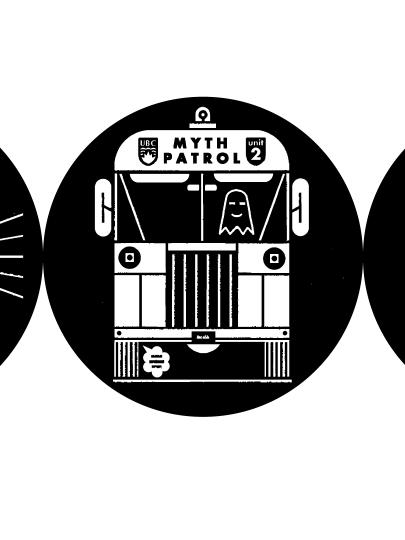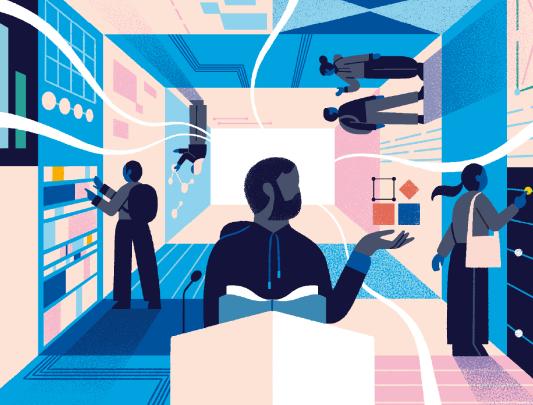
How to advocate for yourself at work
© Monkey Business / Adobe Stock
One of my favourite Korean words is 눈치 (noon-chi). It’s one of those contextually specific cultural words that doesn’t have an exact English equivalent. The literal translation is “eye force” (noon means “eye” and chi means “force”). Alas, noon-chi doesn’t refer to a (BTS-like) Korean superpower. Noon-chi is related more to the ability to listen and read the room — a cleverness in dealing with people. The closest English equivalent to noon-chi would be the concept of emotional intelligence.
Growing up, I often heard family and friends reference noon-chi around me. Their use of the word seemed to imply that you either had noon-chi or not — it was a quality you were born with (or lacked). What I now realize is noon-chi is not fixed. Like any skill, you can work at it.
I am passionate about how we can improve our own noon-chi, which I equate to our self-advocacy skills. Self-advocacy — the act of representing oneself or one’s interests — is an important skill for our career development, but it is one we rarely teach. It might be because many of us may consider self-advocacy to be a form of “bragging.” I certainly did. I thought my hard work would speak for itself and that my supervisors and colleagues would simply notice it — without my drawing any attention to it. Alas, this represents low noon-chi on my part. Like the proverbial tree falling in a forest, if you do hard work and no one is around to see it, will it resonate as hard work by your boss? Considering how busy managers are, likely not.
The good news is there are simple things we can all do to improve our noon-chi. My own self-advocacy skills have improved over the years with concerted practice. The most important way you can build these skills? Avoid asking yourself “Am I doing this right?”. Instead try something new or tweaking what you already do.
Here are three other practices you can implement to boost your self-advocacy skills:
Noon-chi tip 1: Adopt a forward-moving mindset
Mindsets are a lens for us to organize information. When we are confronted by challenges from new situations, we can get overwhelmed. Posing a question like “What can I do differently moving forward?” acknowledges what happened and, more importantly, motivates you to continually learn and do better. Adopting a forward-moving mindset is one way to improve your self-advocacy skills and increase your emotional intelligence.
Noon-chi tip 2: Capture your learnings and contributions by writing them down
How do you reflect on what you learn at work? How do you make sense of your accomplishments? Writing out your reflections is a good habit and a step towards self-advocacy. An easy way to do this is by using the CAR Method to capture your unique contributions.
CAR Method:
C = Challenge (context) – What was the problem?
A = Action – What did you do or contribute?
R = Result – How did things turn out?
The CAR Method is meant to be a quick reflection (three to six sentences) using the above prompts, and will result in insights which you can handily refer back to later. Try this exercise after you have completed a project, so you can see how you helped your team or identify what skill you want to work on for your next project. The stories generated from the CAR Method about what you’ve learned and achieved can be adapted later to be used for resumes, cover letters, and interview preparation. Being able to know, own, and speak your story is what self-advocacy is all about.
Noon-chi tip 3: Lean into the discomforts of networking
Networking is a form of self-advocacy. Part of why I am passionate about alumni UBC, my alumni association, is because of how connecting with the UBC alumni network has helped me in my own career. Six out of my last seven jobs were due to an alumni connection — a fellow UBC grad who simply let me know about an opportunity I wasn’t aware of or encouraged me to apply.
Practicing your networking skills requires knowing the type of advice you are seeking (the second tip helps you with this) along with having the courage to reach out. As a first-generation Korean-Canadian, I wasn’t taught how to network and how networking can benefit one’s career. Many of you understand the power of networking and are continuing to practice your skills, whether it is in person or online. However, if you find networking daunting (and many of us do), try asking for an informational interview or requesting a coffee chat.
There are many ways to build your self-advocacy skills. As you practice advocating for yourself, you will discover many benefits. I know I have. By adopting a forward-moving mindset, I increased my confidence in my work and looked to share more of what I learned with a larger audience through LinkedIn. By reflecting on and writing down my accomplishments, my annual performance review became an easier process, leading to an increase in salary. By networking, I was able to find new opportunities, including discovering what I never expected — that “careers” would be my favourite topic to teach about.
Self-advocacy skills help you stay focused on continual learning, which is a high indicator of growth. Improving your noon-chi will benefit your career and most importantly, as you become a better advocate for yourself, you can become a better advocate for others, using your position of influence and leadership to improve workplace systems to raise our collective noon-chi.
For more practical tips on how to be your own best advocate, watch this alumni UBC career webinar led by the author.





























